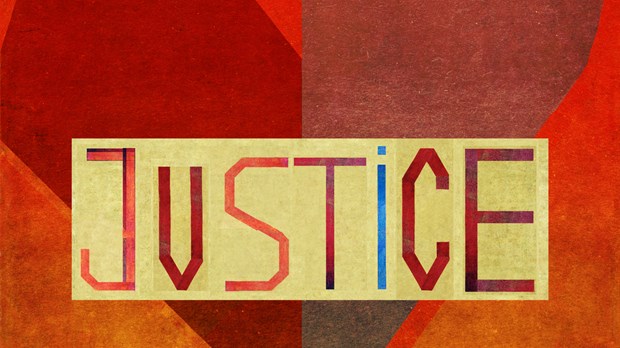
It was a moment that ruined me forever. I was sitting on a bus with fellow college students the first time my heart was moved to commit to seeking racial justice. Little did I know how much obeying this conviction would cost me.
Since then I’ve worked in foster care and homeless shelters, churches, and college campuses. It’s a cause and a calling that follows me into every moment of my life. But I want to confess something: Doing this work is hard. Really hard. In fact, fighting for justice is the worst. It’s not sexy or romantic; it’s often quite gut-wrenching. So in an effort to be honest about this work, I decided to make a list of why you shouldn’t fight for justice.
1. It will exhaust you. Seeking justice in the world is a significant emotional investment. When we follow this call, we’re deeply moved by the ways injustice affects real people, and we work extraordinarily hard to do what we can to make sure no one else has to face the same injustice again. This often requires working behind the scenes—unacknowledged, underappreciated, and overlooked. This kind of work is often done with little to no pay. The nice thing about a traditional 9 to 5 job is the clear understanding of when to stop and go home, but the world of justice is often so connected to who we are becoming that—in order to survive—we’ve got to intentionally rest so we can separate our selves from our causes.
2. You’ll never feel like you’re doing enough. Societal issues are intricate, multilayered, and far-reaching. When God calls us to make a difference, even if we manage to focus on just one issue we can still feel like we’re falling down a rabbit hole of complexities. With those complexities come more opportunities to act, to serve, to fight. I’m personally committed to writing and speaking about racial justice, but I often feel like I’m just not doing enough. There’s a running list on my computer of all the other ways I should be participating in the work of justice: I should volunteer, I should organize, I should support existing organizations, and I should give money. No matter how much I do, I always feel like I should be doing so much more. Fighting for justice means that you’re always exhausting yourself but are still left feeling like it’s not enough. That’s a hard way to live.
3. You’ll never be able to unlearn what you’ve learned. Ignorance is bliss—and the more we learn, the more our lives and relationships are disrupted. When our eyes are opened to the injustices in the world, our lives begin to center on understanding how certain injustices have developed over time and how they are currently maintained. We watch special news reports and gather articles. Our Netflix accounts start suggesting programming that fit our new found passion. (Netflix once suggested for me “critically-acclaimed fight-the-system movies,” which still makes me laugh.) We start having risky conversations with the people we love the most—our friends and family, our congregation and pastor, and our coworkers and neighbors. We know they might not understand, but we are compelled by what we have learned. And—sadly—we’re often rejected, shouted down, and silenced. The Facebook friends we lose are nothing compared to the best friends who don’t call anymore and the former mentors who are now distant from us. Some of us have even been asked to leave our church or our small group. The risk is not to be underestimated.
4. The hits will keep coming. Our commitment to justice keeps us attuned to how far we have yet to go. Our cultural awareness, heightened by our passion for a specific issue, reminds us of all the ways our work is still undone in this fallen world—and it hurts. As the large statistics loom and the numbers become real people, we feel a constant sense of urgency. So we keep ourselves abreast of ineffective changes in laws and policies. We read nonfiction and watch documentaries, constantly opening ourselves to hearing more stories of injustice that we didn’t know before. The news of another unjust situation reaches our inbox or newsfeed hours—sometimes days—before others will even know the situation occurred. Every sad development becomes a marker for us, a place of mourning, even as it stokes our passion for continuing our work.
5. You’ll hardly ever “win.” In the work of justice, “wins” are tough to come by and often difficult to define. It’s critical to recognize those small victories. I love that International Justice Mission celebrates every single woman released from the web of human trafficking. I know of a homeless shelter in Chicago that posts a picture of keys on Facebook every time a former client moves into a new home. But moments like these don’t happen multiple times a day. In fact, they often appear just as we’re on the brink of giving up, when hope seems unreachable. The few and far between victories are often a small but significant reminder that God is still working in the world—that hope can win.
So Why Fight?
Though this list sounds grueling and intense, none of it compares to how meaningful it is to be a co-laborer with Christ. In Luke 4:18–19 Christ stood before a gathering and read from Isaiah, “The Spirit of the Lord is upon me, because he has anointed me to proclaim the good news to the poor. He has sent me to proclaim liberty to the captives and recovering of sight to the blind, to set at liberty those who are oppressed, to proclaim the year of the Lord’s favor” (ESV). There’s a lot of “proclaiming” in this verse, and then suddenly this phrase: “to set at liberty those who are oppressed.” This is the work of justice, and when we give ourselves to it, we experience the Spirit of the Lord. It isn’t the quantity of captives who are set free that drives us as much as the possibility that captives can be set free. We serve—and are empowered by—a God of justice.
And even though answering God’s call may cost us some friends, as our commitment to learning and educating others grows, so does our shared community. God is faithful and will send us allies who can walk this road with us, who can keep our desire to learn alive, and who can push us deeper into conversation—not only with the world but with God. This new community reminds us that though ignorance may have been blissful, life was far less fulfilling before.
Is God calling and convicting you? Even though it is difficult and exhausting work, we must continue to ask those around us to join the global community of “freedom fighters” because there is nothing like the fulfillment of meaningful, gospel-oriented justice work. “Let us not grow weary of doing good, for in due season we will reap, if we do not give up” (Galatians 6:9, ESV).
Read more articles that highlight writing by Christian women at ChristianityToday.com/Women
 Read These Next
Read These Next

 Is Prayer This Hard for Everyone?If my spiritual walk is a journey, I think I need a map.
Is Prayer This Hard for Everyone?If my spiritual walk is a journey, I think I need a map. Pampering with a PurposeHow hairstylists are bringing their talents—and the Truth—to people in need.
Pampering with a PurposeHow hairstylists are bringing their talents—and the Truth—to people in need.
 Frustrated with God?It's not only healthy to share our feelings with him—it's necessary to grow.
Frustrated with God?It's not only healthy to share our feelings with him—it's necessary to grow.








 Homepage
Homepage
